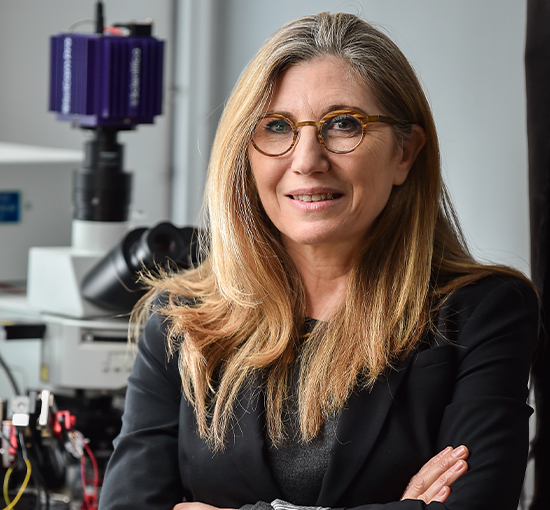Prof. Jackie Schiller’s work in the Rappaport Faculty of Medicine and the Allen and Jewel Prince Center for Neurodegenerative Disorders of the Brain seeks to understand the brain’s largest and most complex structure, the cerebral cortex, and its links to Parkinson’s disease, epilepsy, autism, and more.
The cerebral cortex is responsible for our most basic sensory and motor functions as well as the higher functions of learning, memory, and emotions. Researchers in the Cortical Computation Lab bearing her name focus on how information is processed, changed, and stored in the neurons of the brain’s cortex. Conducting experiments in learning and memory mechanisms, Prof. Schiller and her team use advanced optics, microscopy, and genetic tools to visualize the cortical network at an unprecedented resolution as it learns new tasks.
Recently, Prof. Schiller collaborated with researchers from the Technion’s Andrew and Erna Viterbi Faculty of Electrical Engineering and the Howard Hughes Medical Institute to conduct dexterity experiments with mice. Their findings, published in Neuron, have furthered medical insight into what happens in the cerebral cortex when learning skilled movement such as reaching and grasping for food, and could lead to treatments for dysfunctions of the cortex. She recently published a study in Science describing for the first time how motor information is represented in the fine dendritic processes of the neurons. These findings may have important implications for understanding and treating Parkinson’s disease.
Prof. Schiller earned her bachelor’s, master’s, and doctoral degrees from the Hebrew University of Jerusalem, and conducted postdoctoral research at both the Max Planck Institute for Medical Research in Heidelberg, Germany, and the Mayo Clinic, in Rochester, Minn. She joined the Technion in 2000.
In the future, Prof. Schiller envisions a multidisciplinary brain center that could draw from the Technion’s strengths as a leading engineering research institute, its medical school, and affiliated academic hospitals.

